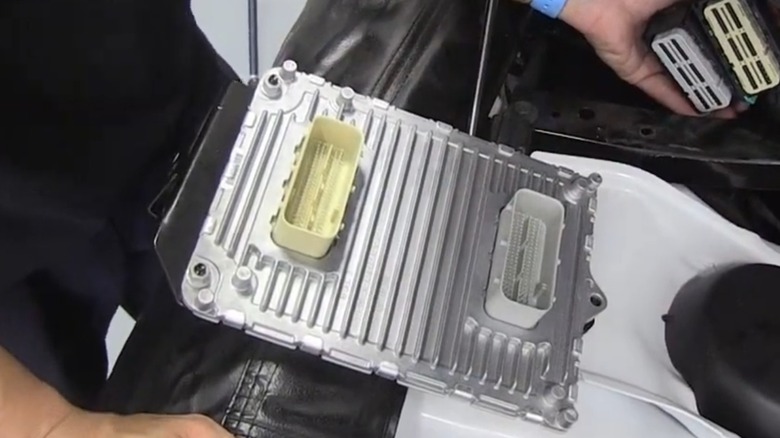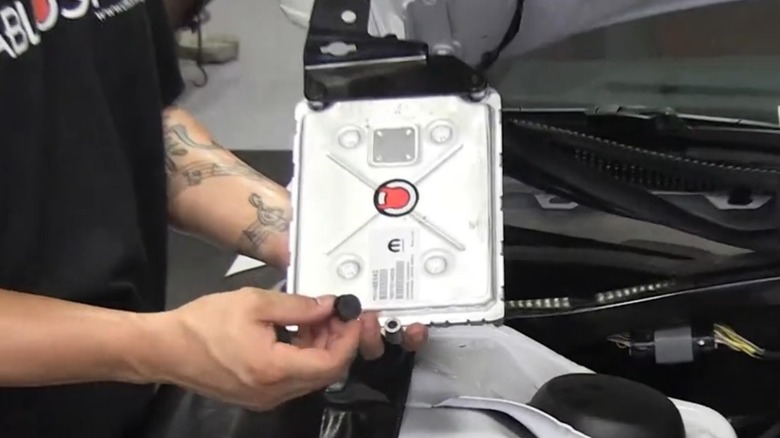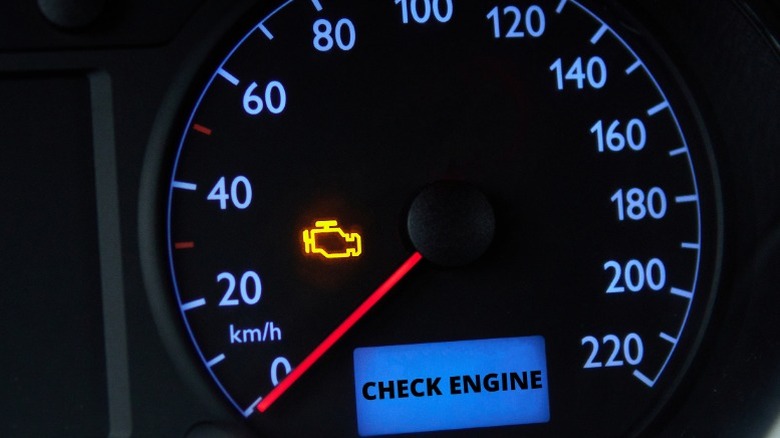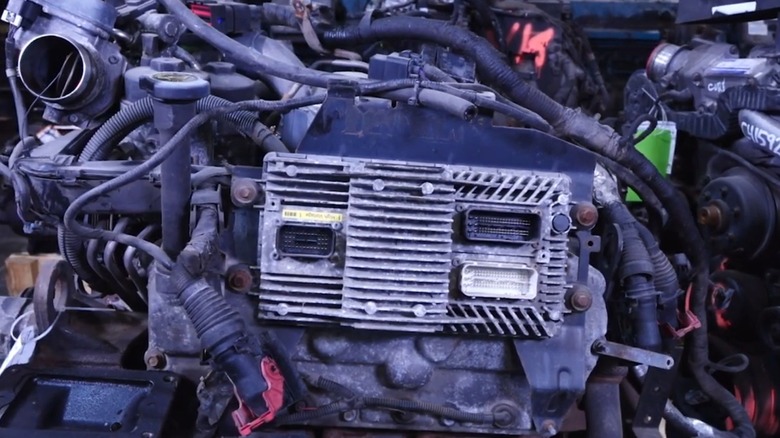What Does 'PCM' Stand For? One Of Your Car's Most Important Components, Explained
Modern cars depend on a vast number of electronics, components, and vehicle systems to send us to and from our destinations. Some of those parts are well-known, like the engine, transmission, and brake system, while others, like the harmonic balancer and evaporative emission control (EVAP) system, are less recognizable to average motorists. Most vehicle parts and systems connect to electronic sensors, which gather information and data about the car's performance and help optimize efficiency. For many modern vehicles, a single computer, known as the PCM or powertrain control module, manages that data and controls various system functions.
The powertrain control module isn't the only computer that you can find on contemporary cars, but it is the primary computer that controls most systems and functions for vehicles that utilize a PCM. It works closely with a huge network of electronics, sensors, and systems to monitor things like oil pressure and control things like fuel injection and transmission gear changes. It's a highly complex component and essential for your car's smooth function. If you're curious about how the PCM works and what exactly it does for your vehicle, stick around — that's exactly what we're going to cover together in this article.
What does the PCM do, and how does it work?
Your car's powertrain control module monitors and controls various parts of the powertrain, including the engine, transmission, and numerous other components that work together to send power to your vehicle's wheels. It's responsible for tasks like adjusting the amount of fuel sent to the engine's combustion chambers based on air intake temperature and volume, controlling when the transmission shifts through gears, and monitoring the exhaust to make adjustments to engine performance and efficiency.
The PCM works thanks to its connection to a large network of sensors and electronics. As the primary computer system in these vehicles, the PCM collects data gathered by those sensors, like the oxygen sensors in the exhaust system or the oil pressure sensor in the engine. It interprets all of that data in real-time and simultaneously and then makes adjustments to things like engine timing, fuel injection, transmission behavior, and more to optimize your car's performance and keep it running smoothly.
In addition to monitoring various vehicle systems in order to optimize performance and efficiency, the PCM also works closely with the car's onboard diagnostic (OBD) system to detect malfunctions and damaged components. If it detects an error, it can trigger a diagnostic trouble code (DTC) and activate one or more of the many dashboard warning lights your car can display.
What are the signs of a faulty PCM?
While your car's PCM is a vital part of its anatomy and essential for various key functions, it's not immune to damage or malfunctions. The problem is that identifying a faulty PCM can be tricky, thanks to the fact that symptoms of a bad powertrain control module may also indicate other vehicle issues. Fortunately, there are a few conditions that can point to a failing PCM if you know what to look for, that is.
One of the first things you may notice if your PCM is failing is a warning light like the check engine light. However, that's part of what makes malfunctioning PCMs difficult to diagnose; various issues can cause your car's check engine light to appear, and you'll need an OBDII scan tool to diagnose a check engine light properly in a modern vehicle. These devices allow us to read and identify DTCs triggered by the OBD system, and some of them even enable us to view performance stats and things like the engine's fuel/air ratio. If you discover that the system has thrown a DTC without your vehicle displaying any additional signs of trouble, it may be a sign that the PCM is malfunctioning. Likewise, if the OBD system triggers multiple different DTCs, and especially if those DTCs are connected to completely unrelated systems, it may also be a sign that the PCM has malfunctioned.
Besides the presence of a check engine light, a bad PCM will also likely cause performance problems, like a drop in fuel efficiency, a rough idle, hard starts, and transmission problems. The PCM is critical for your vehicle's performance, so you should prioritize a visit to a professional mechanic if you experience any of these issues for yourself.
What's the difference between a PCM and an ECM?
If you've heard the terms PCM and ECM used in discussions about cars and are feeling confused, don't worry. While some people do use these two terms interchangeably, there are differences between the two components. While PCM stands for powertrain control module and manages the entire powertrain, which includes things like the engine and transmission, ECM stands for engine control module and oversees only the engine.
A PCM is the primary computer that you'll find in most modern vehicles. For most of the cars that use a PCM, it acts as the main computer system, encompassing various vehicle parts and functions. On the other hand, older vehicles are more likely to use multiple computers that govern different parts of the car. For example, an older vehicle may use an ECM and a TCM (transmission control module) to accomplish many of the same tasks as a PCM does in a newer car.
The PCM and ECM perform similar duties when it comes to engine management. However, the primary difference between the two is that the PCM covers the entire powertrain, while most cars with an ECM rely on separate computers to monitor and control different parts of the powertrain.



